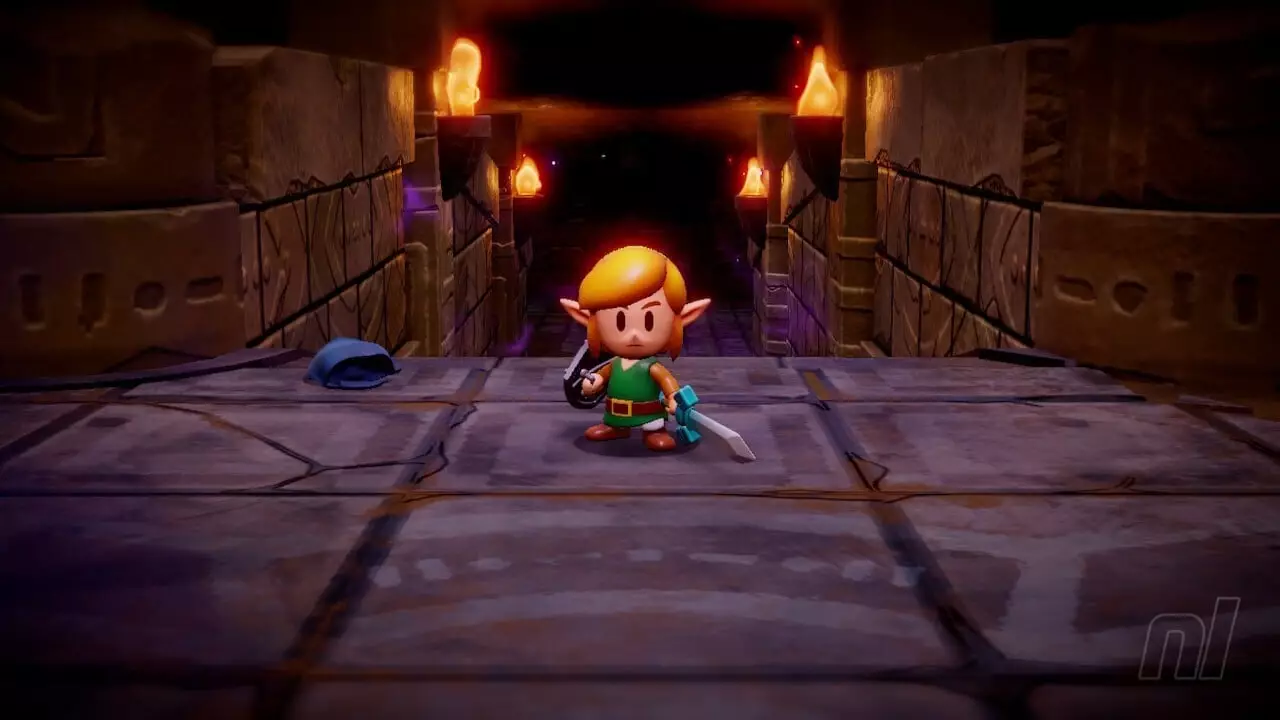The illustrious journey of The Legend of Zelda series has always been about exploring vast worlds and unraveling engaging narratives. With the latest installment, *Echoes of Wisdom*, fans are treated to groundbreaking experiences that set new standards within the beloved franchise. For the first time, Princess Zelda takes on the role of the main playable character, an interesting shift in dynamic that reshapes not only gameplay but also character development. However, the spotlight on Zelda does not overshadow a uniquely engaging detail about Link, the franchise’s stalwart hero, particularly his noteworthy inability to speak.
In *Echoes of Wisdom*, Link has been notably stripped of vocal expression, marking a significant departure from his previous portrayals. Despite his usual sound effects and iconic grunts, Link remains silent throughout the majority of the game. This decision at first glance might seem like an oversight or yet another quirky trait of the hero. However, as players delve deeper into the storyline, a fascinating revelation emerges: Link’s muteness is intricately tied to the narrative arc and character motivations.
Once players conquer the first dungeon, they stumble across a crucial piece of lore in Lueberry’s diary that adds layers to Link’s apparent silence. Within its pages, the narrative hints that many children, including Link, who have been ensnared by the rifts throughout Hyrule, have “lost something” during their ordeal. For Link specifically, that loss translates into his voice. This plot device, while simple, cleverly intertwines Link’s condition with the broader consequences of the rifts, providing depth to his character and a context for his silence.
The motif of loss pervades throughout *Echoes of Wisdom*, creating a thematic resonance with players. By establishing that Link’s silence reflects a significant loss, the game invites players to empathize with him while also deepening the emotional stakes of the journey. The idea that a hero, typically depicted as an embodiment of courage and charisma, can lose a fundamental part of his identity adds an unexpected twist to the storytelling.
Moreover, the game introduces other characters who have also escaped from the rifts, each bearing different burdens or losses, enriching the experience through their shared struggles. This diversity of experience contributes to a feeling of universality, as Link’s muteness is not an isolated phenomenon but a collective consequence of an enigmatic danger that has affected the entire realm. It taps into a more profound conversation about the resilience and adaptability in the face of adversity.
Despite Link’s loss of speech, players still navigate the narrative through meaningful dialogue options with Princess Zelda. Unlike Link, Zelda’s character maintains a verbal presence that allows players to engage with the storyline on different levels, fostering a relationship that feels interactive rather than entirely silent. This juxtaposition not only paves the way for character development but also encourages players to explore the intricacies of communication in a world where silence speaks volumes.
The design choice to keep Link voiceless has evoked mixed reactions among fans. While some appreciate the innovative angle it adds to Link’s characterization, others long for the vivacity that would come with vocal expression. This iterative evolution of Link’s identity, from a silent protagonist to one potentially rich in dialogue, sparks a broader conversation about how video game developers approach character development and player connection.
In *Echoes of Wisdom*, Nintendo and Grezzo craft a narrative that recklessly challenges convention while inviting players to contemplate the deeper meanings behind character dynamics. Link’s muteness is not merely an amusing quirk but a clever narrative device that enhances the emotional weight of the story. As the franchise continues to evolve, it navigates the intricate balance between maintaining tradition and embracing innovation, ultimately enriching the experience for both new players and seasoned fans. The question remains: does Link’s silence enhance his character, or do players yearn for the more vocal hero they once knew? The beauty lies in the diverse opinions that fuel the ongoing conversation surrounding this legendary series.

